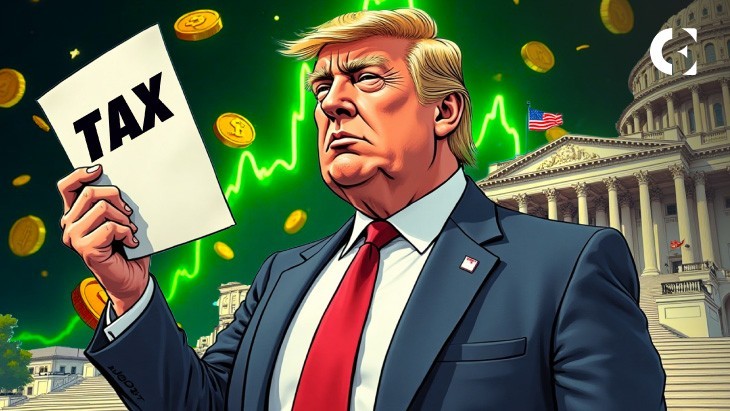Right now, the US Home of Representatives narrowly handed (215-214 vote) President Donald Trump’s complete tax and spending laws, often known as the One Large Lovely Invoice Act. This now strikes to the Senate, the place it faces additional deliberation.
The invoice accommodates many provisions because it seeks to make everlasting the tax cuts launched in 2017. It introduces exemptions for ideas, time beyond regulation pay, and automobile mortgage pursuits, and raises the state and native tax (SALT) deduction cap from $10,000 to $40,000 for incomes below $500,000.
It additionally will increase the kid tax credit score to $2,500 by way of 2028, which then reverts to $2,000, and establishes $1,000 financial savings accounts for kids born throughout Trump’s second time period. The 5% tax on remittances is a part of the package deal, too.
The laws tackled the protection and border safety as properly, allocating round $150 billion to protection, together with a $20 billion missile protection system. The remainder goes to frame safety, with $50 billion assigned for finishing the southern border wall.
Moreover, social program cuts and schooling reforms had been added, specifically, the implementation of labor necessities for Medicaid and SNAP beneficiaries. The invoice additionally ends federal direct backed loans for undergraduates and introduces stricter eligibility for Pell Grants.
Moreover, a giant reduce to inexperienced power tax credit from the Biden-era Inflation Discount Act is integrated.
Potential Implications
The Congressional Finances Workplace (CBO) estimates that the invoice will add roughly $3.8 trillion to the nationwide debt over the following decade, rising it to 125% of GDP. As well as, CBO initiatives that the proposed modifications would end in 8.6 million fewer folks having healthcare protection and three million fewer people receiving SNAP meals stamp advantages every month.
As one may anticipate, this didn’t sit properly with the Democrats, because the invoice handed with unanimous Democratic opposition, together with just a few Republican members opposing it. Democrats criticize the invoice for favoring the rich and reducing important companies for weak populations.
Now, it’s left for the Senate to overview the invoice, with debates anticipated to give attention to its fiscal implications and social program reforms. Any amendments would require reconciliation with the Home model earlier than the invoice may be enacted into regulation.
Disclaimer: The data introduced on this article is for informational and academic functions solely. The article doesn’t represent monetary recommendation or recommendation of any sort. Coin Version just isn’t answerable for any losses incurred because of the utilization of content material, merchandise, or companies talked about. Readers are suggested to train warning earlier than taking any motion associated to the corporate.



